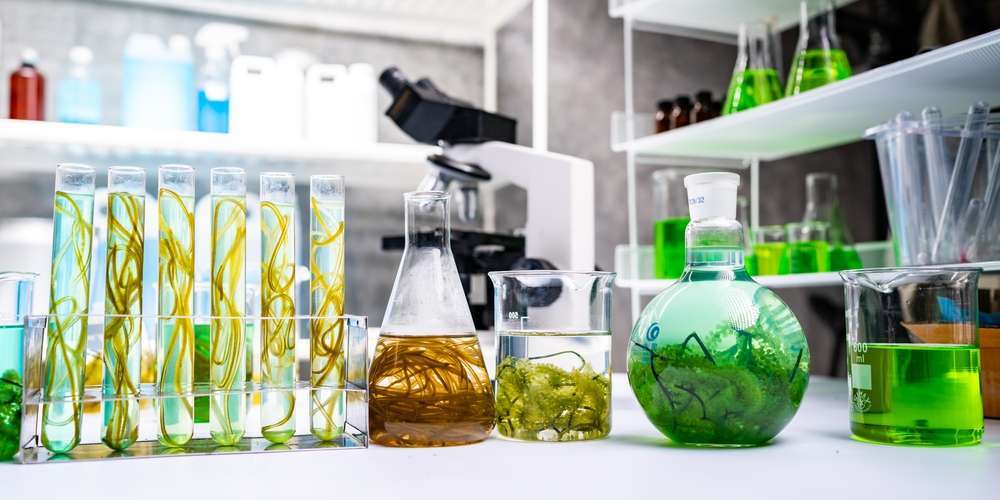What is biotechnology?
BIOTECHNOLOGY
Biotechnology uses living things like cells and microorganisms to make products and solve problems. Its biology + technology creates new solutions in medicine, agriculture, and industry for the evolution of science.

TYPES OF BIOTECHNOLOGY:
Biotechnology is a broad term and is divided into various applications. Some of them are as follows:
- Red biotechnology: This focuses on medical and pharmaceutical applications. It involves making new drugs, and vaccines and editing genes for the betterment of nature. Many tools and techniques are also used in diagnosis. For example, it includes gene therapy and the production of recombinant protein.

- Green biotechnology: This focuses on agricultural and environmental sectors. It involves genetically modifying crops for better yield and saving crops from diseases using biopesticides. It also involves various processes for the cleaning of the environment by using microorganisms. Bioremediation is a process used to clean up the pollutants from the soil, water, and air.

- White biotechnology: also known as industrial biotechnology. It uses microbes to produce useful products for example biodegradable plastics, biofuels, energy, and other industrial products.

- Blue biotechnology: this specific area covers marine and aquatic environments. It uses marine organisms to develop new products like enzymes for industrial use or drugs. Aquaculture focuses on enhancing the breed and health of fish and shellfish.

Applications of biotechnology:
Biotechnology is a combination of many branches of science and has the following applications that have positive impacts on the world.
1. Pharmaceutical biotechnology: Use of biological processes to develop drugs and vaccines every year.
Genetic engineering: genes are altered to cure or prevent diseases. Diagnostic biotechnology: developing methods and instruments or devices for detecting diseases.
2. Agricultural biotechnology: Genetically Modified Organisms (GMOs) help modify crops to increase their nutritional value, yield, or pest resistance.
Biofortification: improving the nutritional value of crops.
Biopesticides: help remove crop pests with the help of natural organisms.
3. Industrial Biotechnology: Bioprocessing: Microorganisms are used to produce chemicals, materials, or energy.
Biofuels: using biological materials to produce renewable energy sources such as biodiesel and ethanol.
Biopolymers: using biological sources to create biodegradable plastics and other materials.

FREQUENTLY ASKED QUESTION
1. ARE BIOTECHNOLOGY AND GENETIC ENGINEERING THE SAME?
Biotech and genetic engineering are related but not the same.
- Biotechnology: A broad field that uses biological systems and organisms to develop products and technologies in medicine, agriculture, and industry. It includes various techniques and applications, fermentation, enzyme technology, and cell culture.
- Genetic Engineering: A specific area within biotech focused on directly modifying an organism’s DNA. This involves techniques like gene editing (e.g., CRISPR) and recombinant DNA technology to alter genes for a specific purpose.
In short, genetic engineering is part of biotechnology, focusing on genetic modifications, while biotechnology covers a wider range of biological applications.
2. WHO DISCOVERED BIOTECHNOLOGY?
Biotechnology evolved with many scientists:
These are the building blocks of modern biotechnology.
3. WHY BIOTECHNOLOGY IS IMPORTANT?
Biotechnology is important for:
1. Health: To develop better treatments, vaccines, and diagnostic tools, manage diseases and overall health.
2. Agriculture: Create higher-yielding, pest-resistant, nutritious crops, food security, and sustainable agriculture.
3. Environment: To clean up pollutants, manage waste, and conserve natural resources, environmental sustainability.
4. Industry: To create green products and processes, biofuels and biodegradable materials, reduce dependence on non-renewable resources.
5. Economic Development: It drives innovation and creates new industries, jobs, and economic growth.
4. What are the impacts of GMOs on human life?
Impact of GMOs on Human Life
Genetically Modified Organisms (GMOs) have several important benefits and concerns:
Benefits:
- Increased Agricultural Productivity: GMOs can lead to higher crop yields and reduced loss due to pests, diseases, and environmental conditions.
- Enhanced Nutritional value: Some GMOs are engineered to have improved nutritional value, such as golden rice enriched with vitamin A.
- Reduced Use of Chemicals: Crops resistant to pests or herbicides can decrease the need for chemical treatments, potentially reducing environmental impact.

Concerns:
- Health Risks: While GMOs are generally considered safe by major health organizations, some people worry about potential long-term health effects or allergic reactions.
- Environmental Impact: There are concerns about the impact of GMOs on biodiversity and the development of resistant pests or weeds.
- Economic and Ethical Issues: GMOs can lead to market monopolies and dependency on biotech companies for seeds. There are also debates about the ethical implications of genetic modifications.
Overall, biotechnology and GMOs have the potential to significantly benefit human life, but they also come with challenges that require careful management and ongoing research.
Bio Art Bites
Disclaimer
We are an educational platform, not professional counselors, therapists, or medical experts. The content provided on this blog is for informational purposes only and should not be considered professional parenting, medical, psychological, or legal advice. Every family and child is unique, and what works for one may not work for another. Always consult qualified professionals before deciding on your family's health, education, or well-being.

Very informative